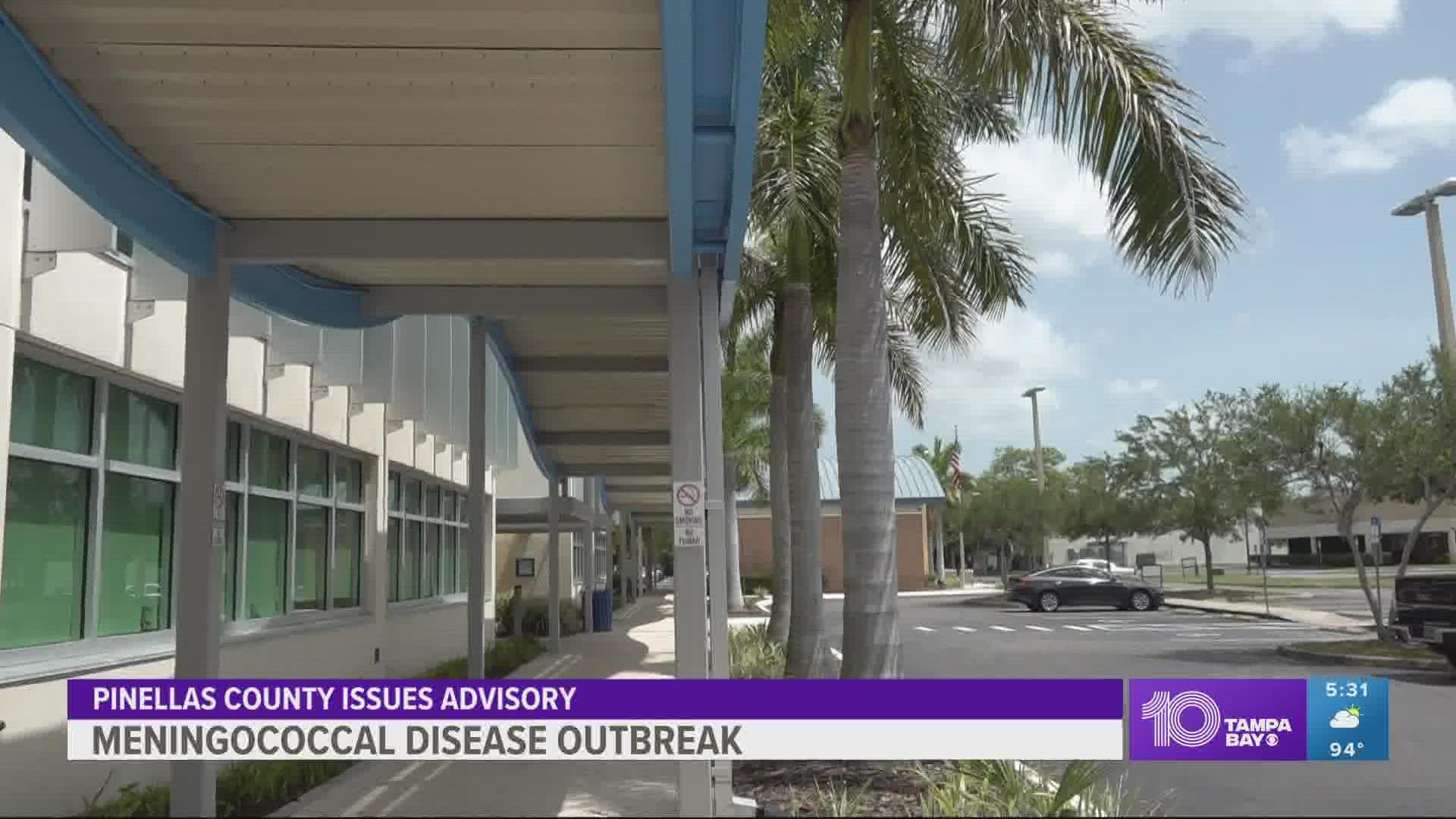ST. PETERSBURG, Fla. — People most at risk of meningococcal disease are urged to get vaccinated as Florida state and county health officials continue to highlight a recent spike in cases statewide, particularly among the LGBTQ community.
In a statement on Wednesday, the Pinellas County Department of Health said the number of meningococcal disease cases identified so far in 2022 surpasses the five-year average of cases in Florida. There are a total of 35 confirmed cases so far this year, with a five-year average of about 21 cases annually, according to the Department of Health.
None of these cases are in Pinellas County, but health officials are issuing an advisory now as families take summer travel and are ahead of the start of school.
"Certainly, we're actually seeing some cases of meningococcal disease in the Orlando area, we've also seen them in South Florida," said Tom Iovino, a spokesperson for the Florida Department of Health. "There's nothing here in Pinellas County right now. However, we do know that people go on vacation or even more importantly, they go away to college at these locations.
"So, we want people, if they're thinking about going to school, to make sure they get the vaccine now, so they're ready when it comes time to leave."
The message is similar to one the health department in Hillsborough County issued in April: An outbreak in Florida is ongoing, and people should take steps to protect themselves.
"Meningococcal disease," Dr. Jill Roberts, a USF professor and epidemiologist, said, "we always get a little bit worried when we hear about that particular pathogen because of its ability to cause very serious disease very, very quickly."
The CDC considers Florida to be undergoing an outbreak of meningococcal disease particularly among gay, bisexual and other men who have sex with men. Data shows about half of the cases are among Hispanic men, the agency said.
"Our baseline number [of cases] is zero so anytime you ever see any cases whatsoever, we want to aggressively attack those types of outbreaks," Roberts said.
Meningococcal disease is an umbrella term for any illness caused by the bacteria Neisseria meningitidis, according to the Centers for Disease Control and Prevention. This bacteria lives in the back of the nose and throat of about one in 10 people without causing illness, the CDC says, though it can spread to others through saliva or close contact.
"Generally, it takes close (for example, coughing or kissing) or lengthy contact to spread these bacteria," health officials say. The disease is said not to be as contagious as germs that cause cold or flu, however.
Problems can occur if the bacteria spreads and it invades another person's body. This could become meningococcal meningitis if the bacteria infects the lining of the brain and spinal cord and cause swelling. The most common symptoms include fever, headache, and stiff neck.
If you experience these symptoms, Roberts urges you to reach out to your doctor immediately for evaluation and treatment. "I cannot stress how important it is to reach out for care," she said. "You can have the onset of symptoms and a death within 24 hours"
It's meningococcal septicemia if a person's bloodstream is infected. Regardless of infection, the disease can be deadly if not treated quickly with antibiotics.
People in group settings, such as college students in dorms, also have a higher risk compared to similar peers who are not attending college.
"This thing is vaccine-preventable," Roberts said. "People should be getting vaccinated but a lot of times we fall off of that vaccine schedule when we get a little bit older."
The CDC in the meantime recommends all gay and bisexual men in Florida get one dose of a MenACWY vaccine, which you can learn more about by clicking here. People with HIV should talk to their doctors about a two-dose series of the vaccine.

